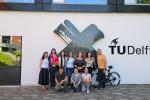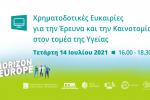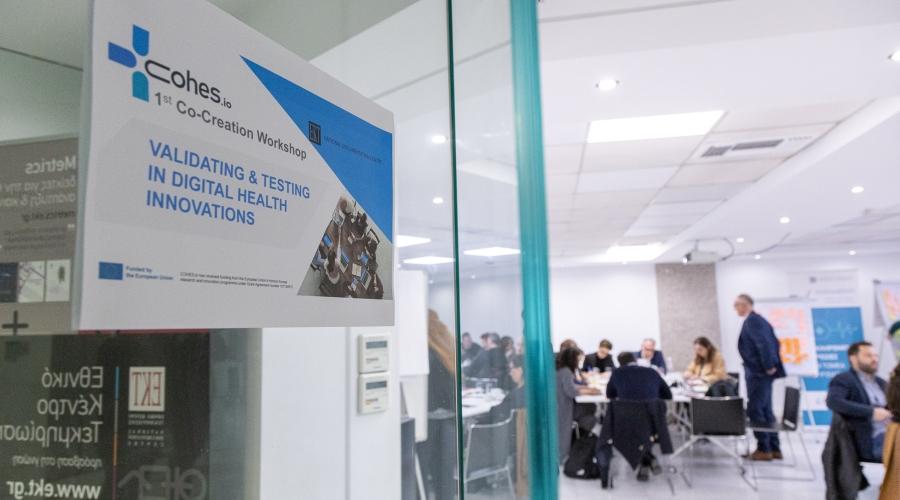
With the participation of 90 representatives of the Greek healthcare ecosystem, the four Co-Creation Workshops for strengthening open innovation in digital health, organized by the National Documentation Centre (EKT), were successfully completed. The meetings were organized in collaboration with the Regional Development Fund of Attica, within the framework of the European project COHES.io (Connected Health Ecosystems via Open Innovation), in which EKT participates as a partner.
Policy makers, representatives of the pharmaceutical industry, businesses and startups, healthcare providers, researchers and scientists, as well as representatives of patient associations participated in the roundtable discussions, aiming to highlight the challenges, obstacles, and opportunities in the field of digital health, as well as the contribution and role of all involved in the healthcare ecosystem.
Results of the 4 Co-Creation Workshops
The 1st Co-Creation Workshop, titled "Validating & Testing of Digital Health Innovations", was held on March 22, 2024, with the participation of 27 representatives and stakeholders of the healthcare ecosystem in Greece.
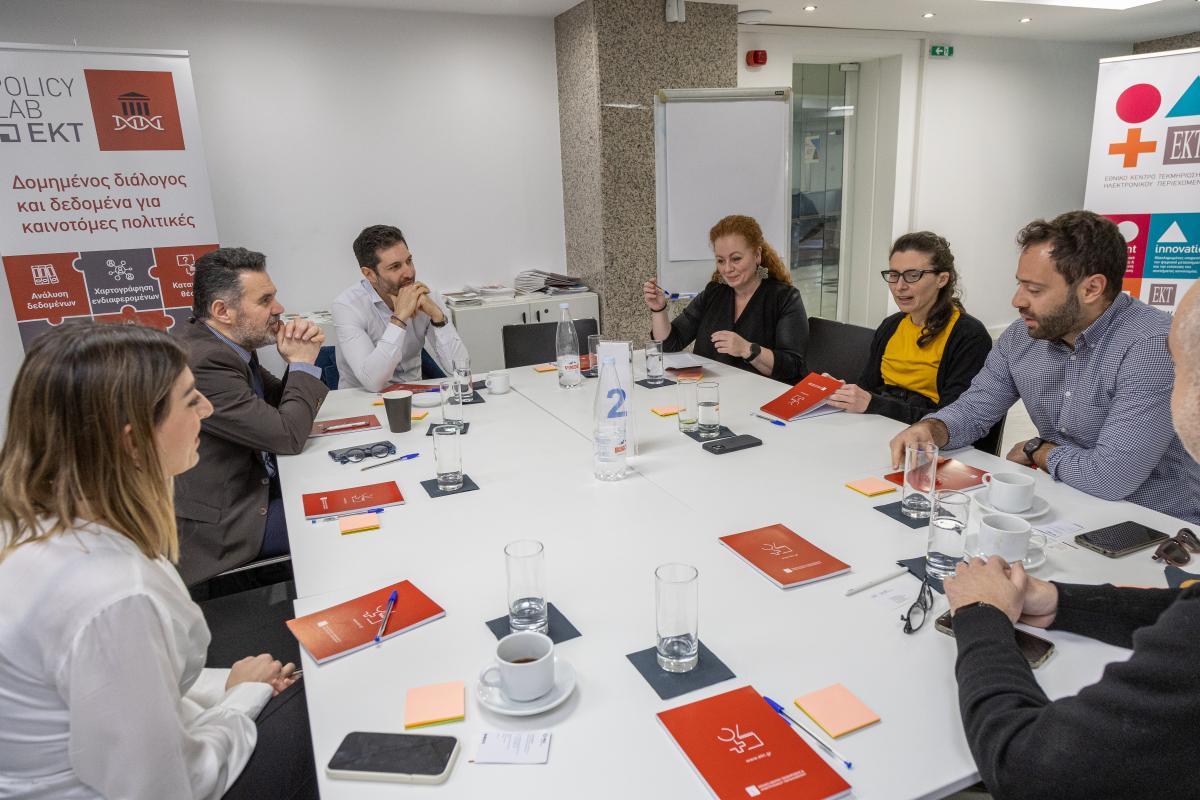
The main goal of the roundtable was initially to validate the innovation analysis of the healthcare ecosystem and to highlight the challenges and obstacles that need to be overcome in the region to strengthen open innovation in digital health. Among the challenges identified, the central coordination for digital data connectivity was deemed most significant, affecting data availability.
Additionally, the participants identified all the strengths and opportunities for collaboration, notably the valuable human resources and the numerous relevant national and co-funded initiatives that can serve as catalysts for strengthening partnerships.
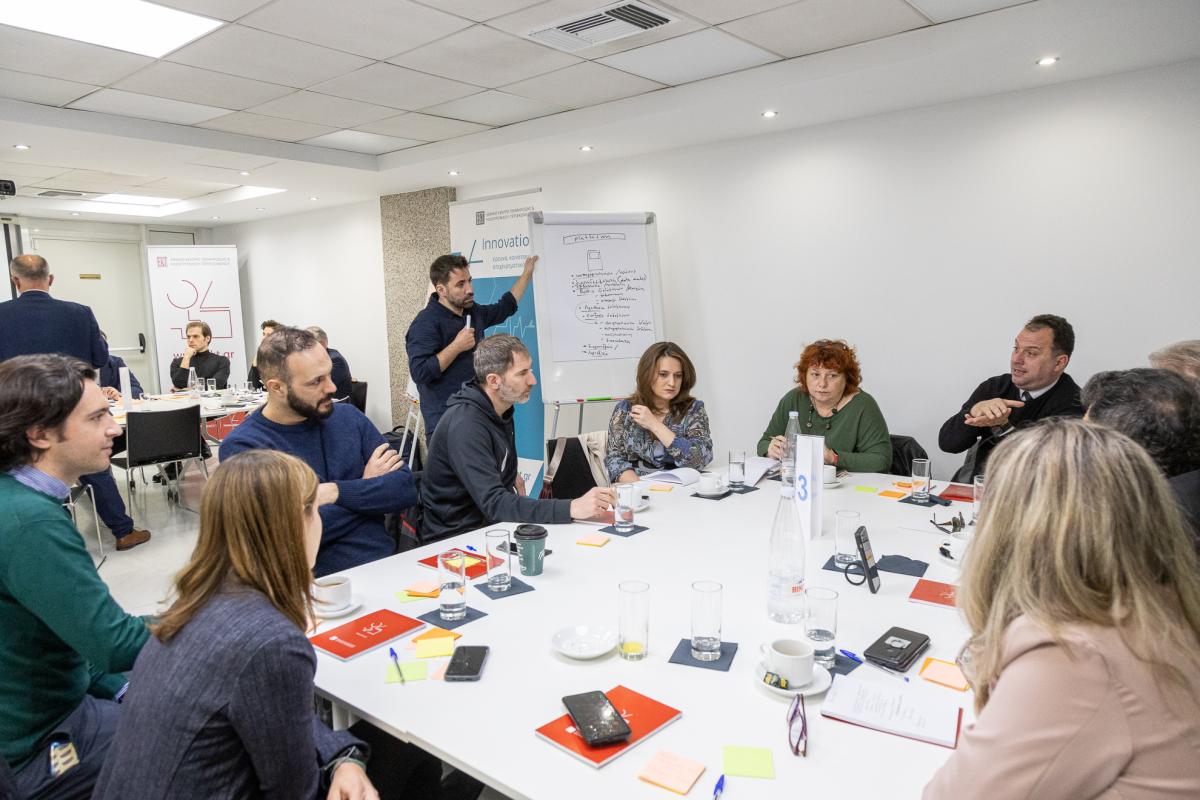
The 2nd Co-Creation Workshop, focusing on data management and interoperability, took place on April 12, 2024, with the participation of 20 representatives from the Greek healthcare ecosystem.
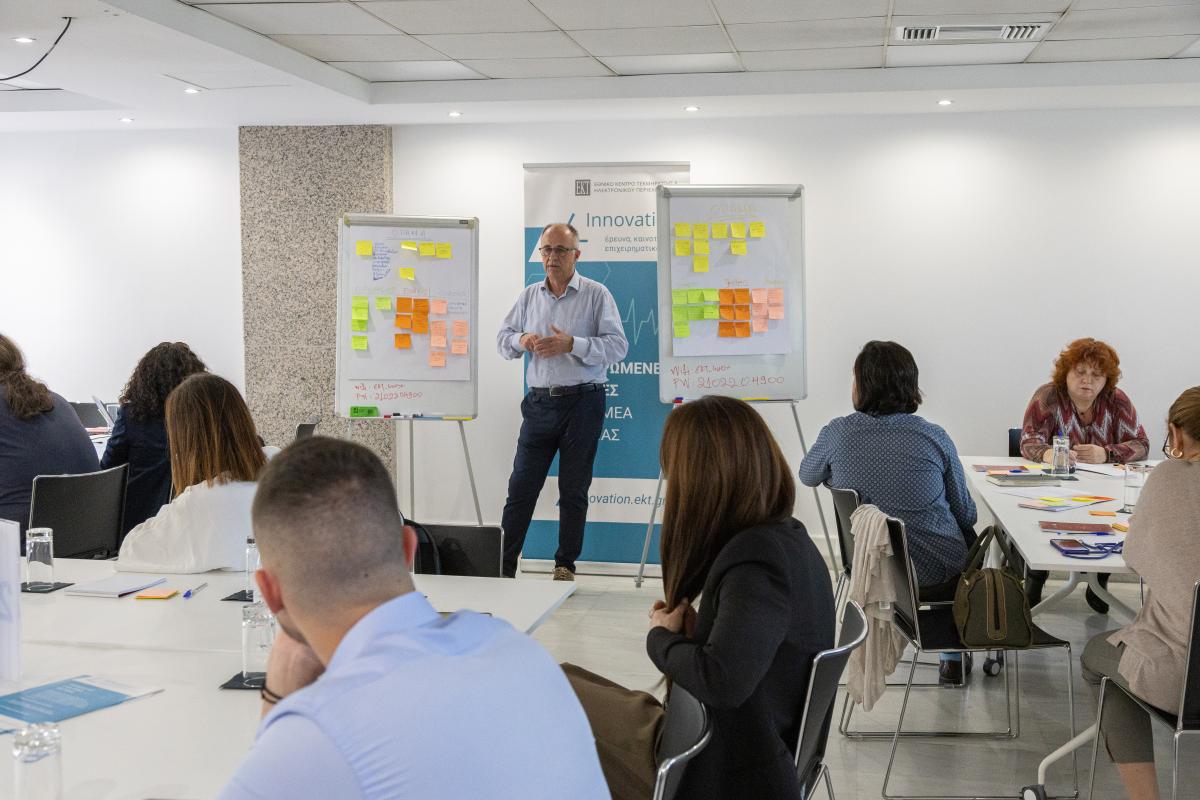
During the Co-Creation Workshop, participants thoroughly analyzed ideas and solutions for improving digital health through better data management. Additionally, they highlighted the challenges faced in connecting different databases, a problem that is exacerbated when dealing with different healthcare systems. Finally, they discussed the importance of collaboration to overcome these challenges and make data accessible and manageable.
One of the most important aspects that emerged from the discussion was the collection and storage of primary data, as well as the management of secondary data.

The 3rd Co-Creation Workshop, focusing on data management and infrastructures, took place on May 17, 2024, with the participation of 18 representatives from industry, academia, public administration, and civil society.
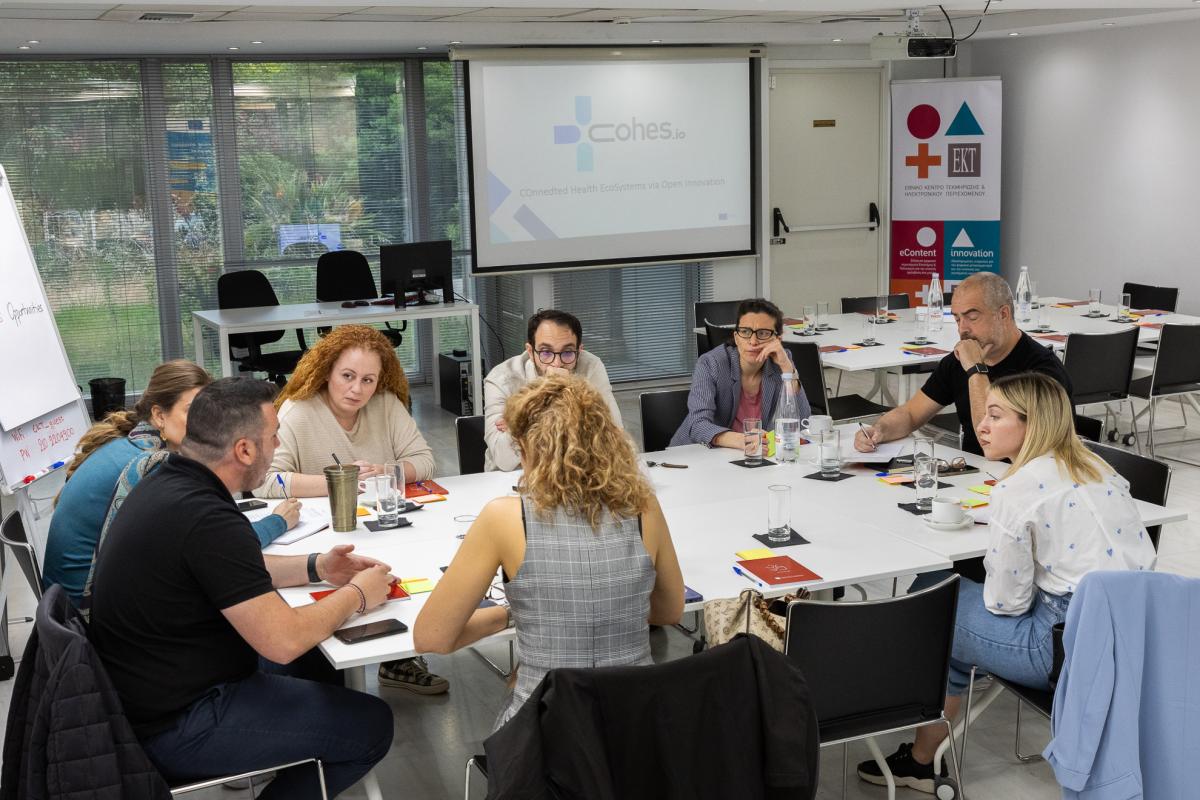
The primary goal of the Co-Creation Workshop was primarily to identify secure and effective ways of managing medical data, as well as to propose improvements in infrastructure or create new ones for utilizing interoperable data.
Some points of interest that were highlighted included the need for secure, open, and interconnected medical data among healthcare providers and patients, the development of new infrastructures and protocols for training all stakeholders for direct and easy access, and the existence of a legal framework harmonized with national and European policies.
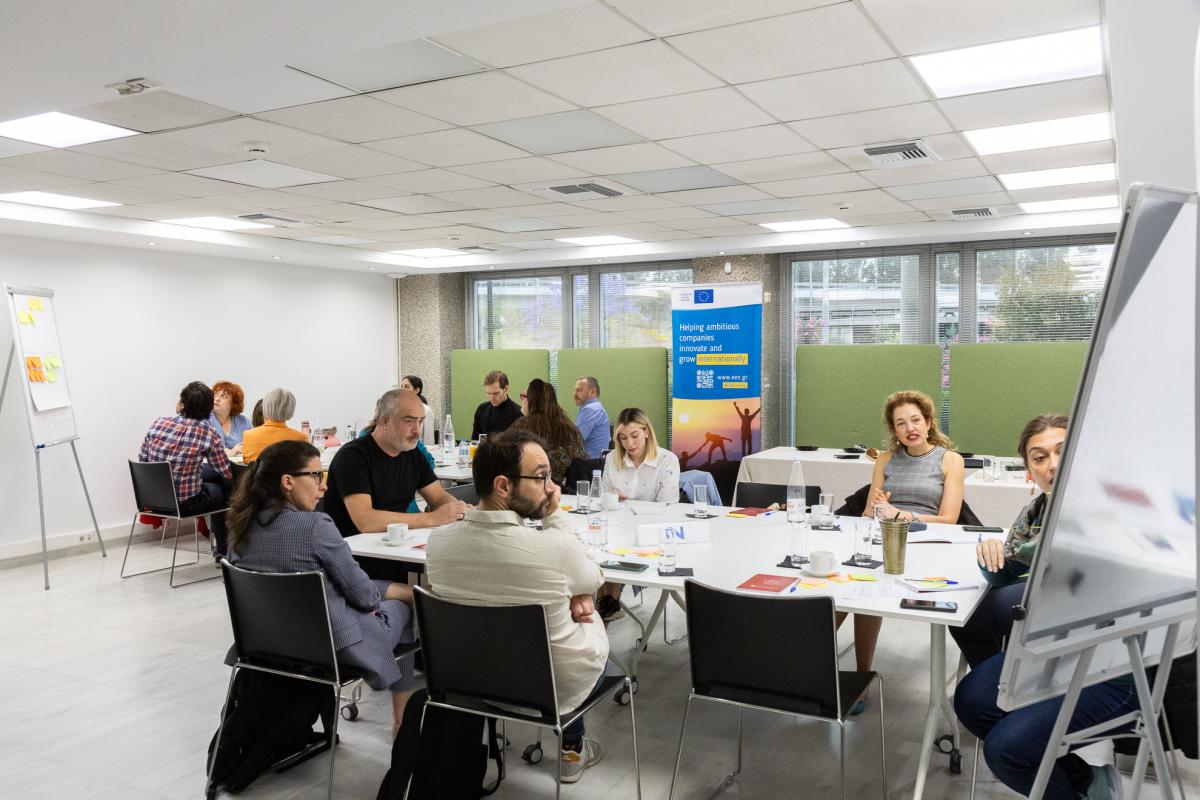
The 4th Co-Creation Workshop, which concluded the series of workshops, focused on interregional collaboration and took place on May 31, 2024, with the participation of 24 representatives from the Greek healthcare ecosystem.
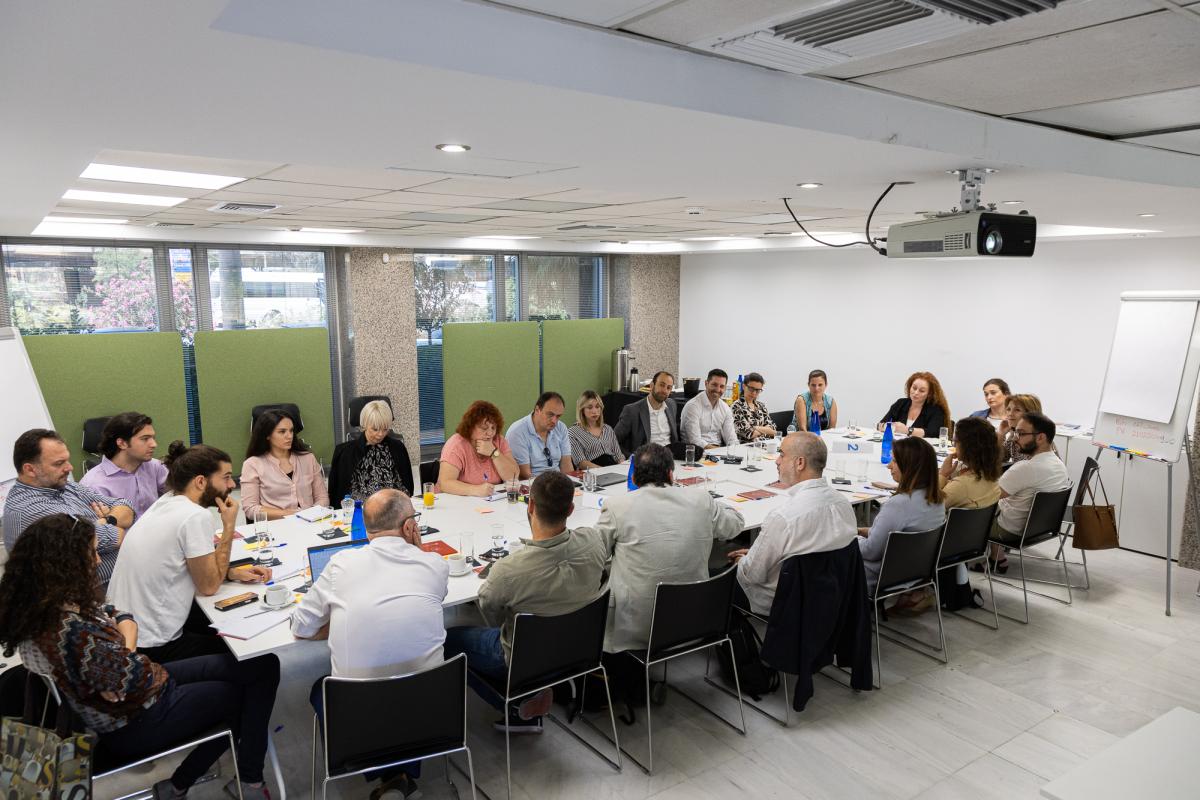
In this context, ways to strengthen interregional collaboration were discussed, along with challenges and existing issues that hinder the adoption of best international practices. Specifically, participants identified that the call for PCP/PPI programs, training researchers on proposal submissions, more active policy engagement to address issues in the digital health sector, including enhancing funding, the presence of more doctoral programs at universities contributing to the creation of new spin-offs, and the development of more innovative applications by businesses, will positively contribute to the sector's growth and strengthen interregional collaboration with potential expansion to other countries.
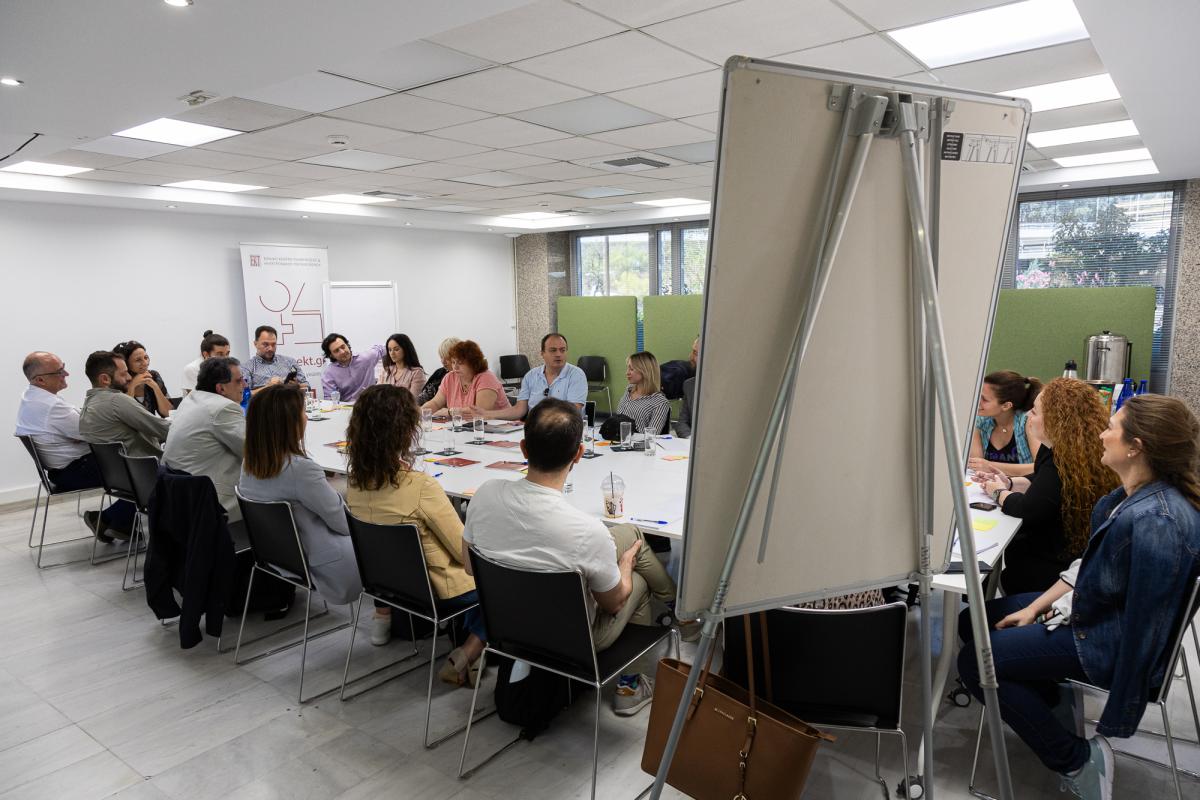
Participants also had the opportunity to learn about the establishment of Interregional Working Groups (IWGs) and their activities, as well as the possibilities for using the Life Science Open Space (LSOS) collaboration platform. LSOS enhances project support and IWG collaboration, facilitating communication and knowledge exchange among regional ecosystem stakeholders.
The COHES.io project
The COHES.io project, funded by the European Union, commenced in January 2024 and is scheduled for completion by December 2024. Its aim is to eliminate barriers to open innovation in the dynamic landscape of digital healthcare.
The objective of COHES.io is to enhance open innovation within three healthcare ecosystems across Europe. It seeks to create an open innovation environment for digital health by connecting the healthcare ecosystems of Portugal (Norte region), Poland (Malopolskie region), and Greece (Attica region). This initiative is supported by the DRIVE methodology developed by Delft University of Technology under the coordination of EIT Health Innostars. The National Documentation Centre (EKT) participates in the project as a partner.
EKT's contribution and role in the Greek healthcare ecosystem
The National Documentation Centre (EKT), as a supervised body of the Ministry of Digital Governance, plays a catalytic role in connecting and strengthening the Greek healthcare ecosystem. Among its responsibilities, EKT serves as the National Contact Point for Horizon Europe, specifically in Pillar 1 for the Marie Skłodowska-Curie Actions (MSCA) thematic area, and in Pillar 2 for thematic groups 1 "Health" and 4 "Digital Technologies, Industry and Space", as well as for the Mission on Cancer. Throughout these roles, EKT supports organizations, businesses, academic institutions, and research bodies along the entire path: from identifying funding opportunities to drafting and submitting proposals, project implementation, and utilization of research results.
Additionally, EKT holds a coordinating role in managing European programs (such as ECHoS for creating national hubs for the Cancer Mission and COHES.io for strategic interconnection of healthcare regions through open innovation). It also acts as the coordinator of the EIT Health Hub in Greece and plays a coordinating role in the Enterprise Europe Network Hellas consortium, the largest business support network in Europe.
Learn more about the COHES.io project: https://cohes-io.eu/
See more photos from the Co-Creation Workshops: https://www.ekt.gr/en/events/photos/30327
Photos by: EKT / Yiannis Voulgarakis











